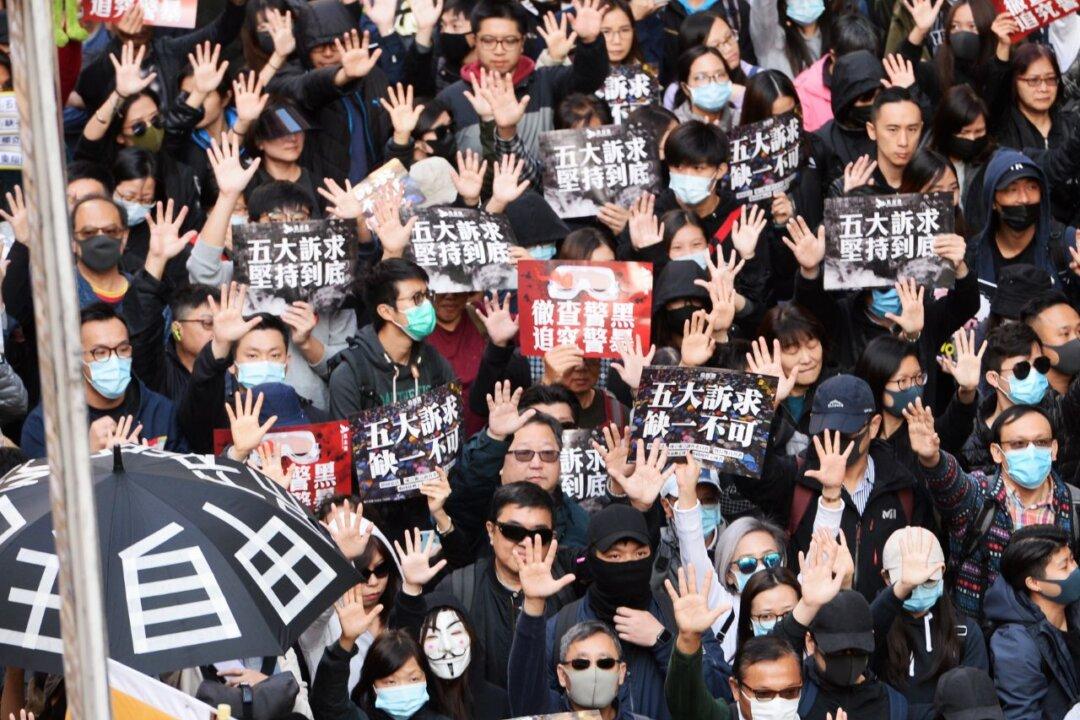HONG KONG—A vast sea of people marched through downtown Hong Kong on Dec. 8 to show their determination to preserve Hong Kong’s autonomy from the Chinese Communist Party’s influence and to push for greater democracy.
With the theme “Stand With Hong Kong, Walk With You All,” the march was organized by local pro-democracy activist group Civil Human Rights Front (CHRF). The group obtained rare police approval to organize the event. Its previous three march applications—on Aug. 31, Oct. 1, and Oct. 20—were all turned down.





